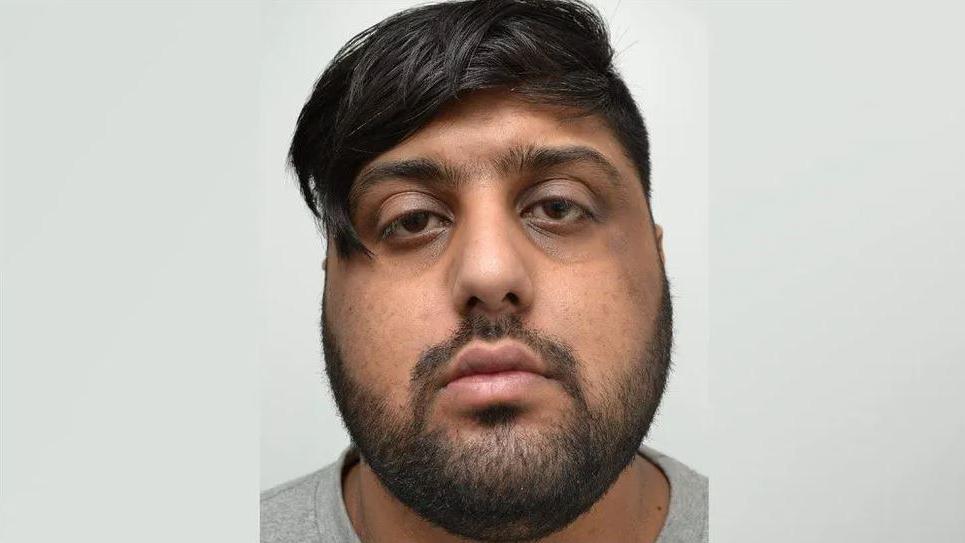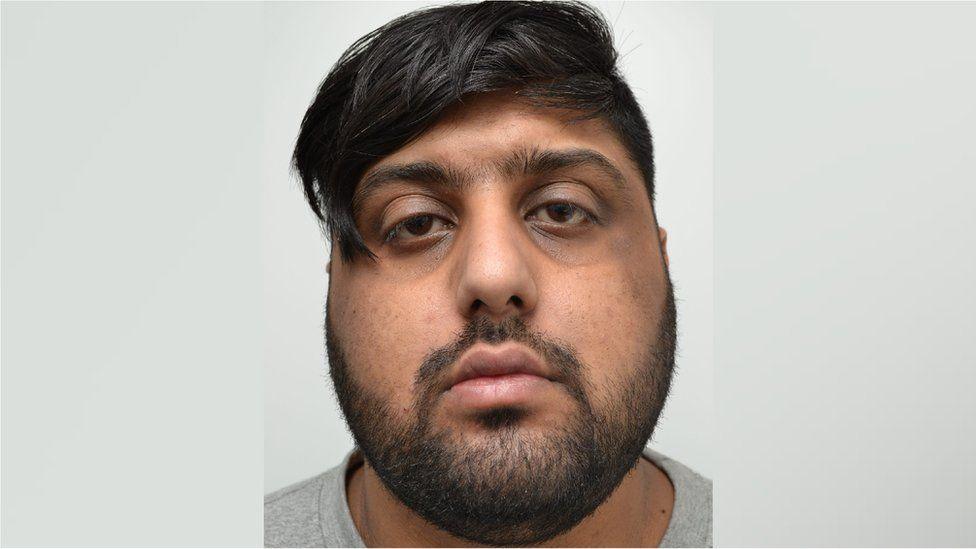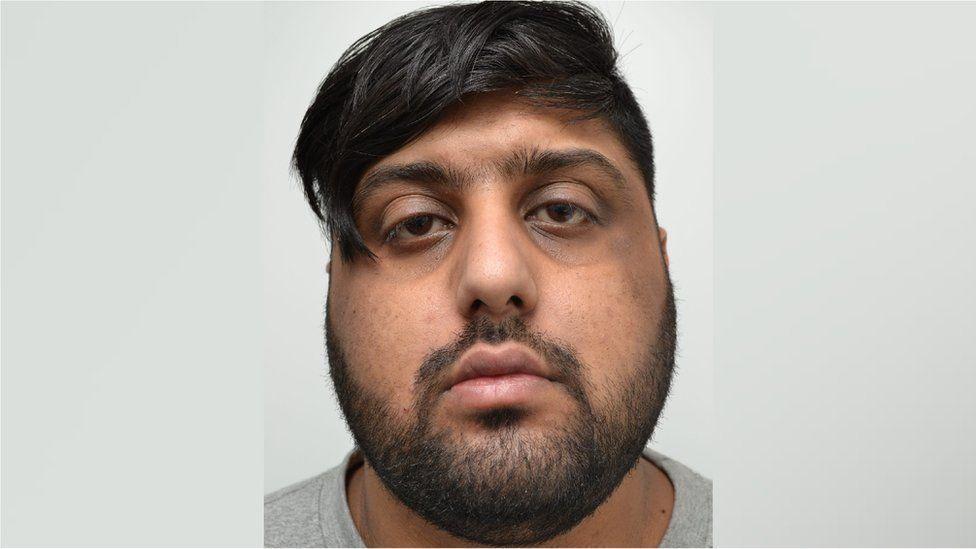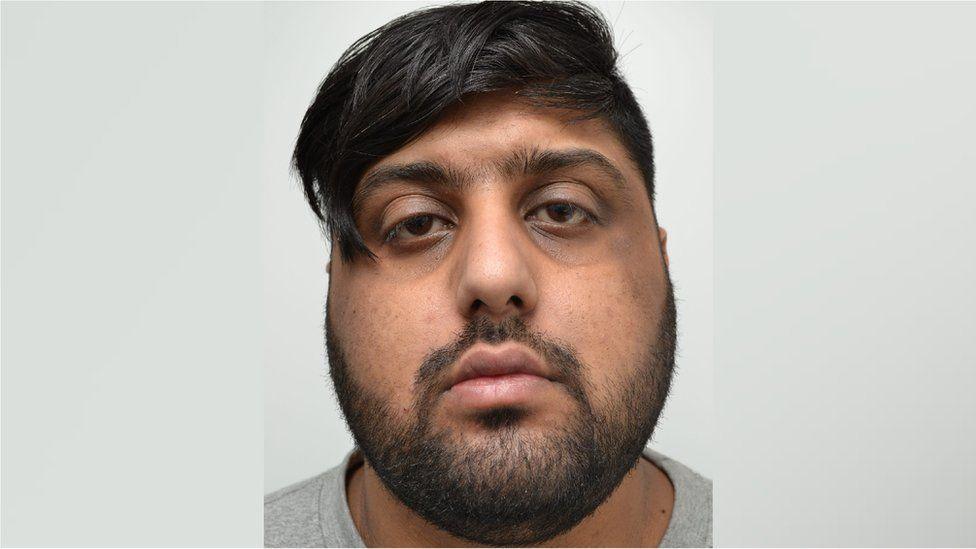Hospital bomb accused angry at colleagues - court

Mohammad Farooq did not give evidence in his defence
- Published
A man accused of trying to detonate a pressure-cooker bomb outside a hospital did so because he was angry at colleagues rather than because of Islamist ideology, jurors have been told.
Mohammad Farooq, 28, is accused of targeting St James's Hospital in Leeds, where he worked as a trainee, on 20 January 2023.
He denies preparing acts of terrorism, but has pleaded guilty to firearms offences and possessing an explosive substance with intent.
Sheffield Crown Court was told Mr Farooq had autistic spectrum disorder (ASD), depression and personality disorders.
Plot foiled
The trainee nursing associate, who has also pleaded guilty to having a document likely to be useful to a person preparing or committing an act of terrorism, did not give evidence in his defence.
His barrister Gul Hussain KC told the court that no other witnesses would be called, leading to the judge telling the jury: "We have reached a significant place in this trial a little earlier than expected."
The judge, Mrs Justice Cheema-Grubb, summarised the case, saying the prosecution alleged he was "bitter and resentful, interested in Isis and al-Qaeda, and self-radicalised by things he had found online and on TikTok videos".
Earlier in the trial, the court heard how he had driven to RAF Menwith Hill, an air base near Harrogate identified as a potential target by the Islamic State.
However, foiled by security and problems getting into the base, he left and drove to the Gledhow Wing of St James's Hospital.
'Isolated and lonely'
It was only when he spoke to a patient outside and told him he was seeking revenge, that the patient told him it "wasn't worth it", and Mr Farooq asked him to call the police.
Mrs Cheema-Grubb told the jury the defence's case was that he was an isolated, lonely and depressed young man who felt humiliated at work and was unable to cope.
She said: "They say that even if he showed an interest in terrorist ideas, he was not committed to an ideological cause."
Summarising the case, the judge told jurors: “A cool, calm, objective approach is required.
“The Muslim faith is not on trial.
“Making a bomb is a highly dangerous and unusual thing to do, but why did he do it?
"You are not being asked in this trial to condemn or endorse his choice of religion or moral values, but to look at his conduct leading up to arrest."
The closing statements are due to be read out on Tuesday before the jury retires to consider its verdict.
Follow BBC Yorkshire on Facebook, external, X (formerly known as Twitter), external and Instagram, external. Send your story ideas to yorkslincs.news@bbc.co.uk, external
Related topics
More stories like this
- Published20 June 2024

- Published19 June 2024

- Published21 June 2024
